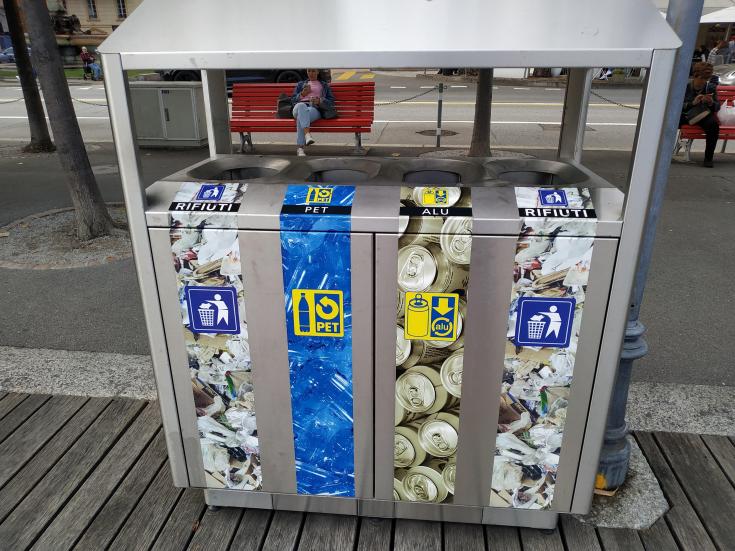Zero waste education and participation: Key learnings

On 4 May 2023, the Policy Learning Platform hosted the second webinar of the waste prevention series focusing on zero waste education and participation.
During the webinar, several good practices from across Europe were put forward, coming from Interreg Europe projects: CECI, LCA4REGIONS, and ABCitieES. The practices focused on methods to encourage citizen participation in waste prevention, as well as inspirational examples of educational campaigns. Watch the recording, explore the key learnings, and download the presentations below.
Webinar agenda
Navigate the agenda below to the topic of your interest.
The webinar has been designed and moderated by Astrid Severin and Magda Michaliková, Thematic Experts of Low-carbon economy.
00:03:36 Introduction by Astrid Severin on the topic
00:06:17 Keynote speech by Serena Lisai, Association of Cities and Regions for sustainable Resource management on how to engage citizens in waste prevention activities, Belgium
00:20:18 Q&A: What are the main motivational factors for people to participate in waste prevention activities?
00:22:14 Q&A: Have you observed any cultural differences in different countries?
00:25:17 Q&A: How do you monitor impact, do you have indicators? And do you help others that are participating in the campaign to monitor their impact?
00:30:25 Presentation by Antoine Delaunay Belleville on Disco Soup encourages citizen participation and food waste prevention, France (CECI)
00:38:20 Q&A: Do you get the food from the supermarket for free?
00:42:01 Q&A: Do you have official agreements with the supermarkets?
00:46:02 Presentation by Sofia Martins on e-learning course on construction and demolition waste, Portugal (LCA4REGIONS) TBC
00:54:27 Q&A: Is there a link to this course? Can participants access the course?
00:57:17 Q&A: Do the participants receive a certificate of attendance for the course?
00:58:40 Presentation by Patricia van Hemert, on Zero Waste Lab Plein 40-45, Netherlands (ABCitieES)
01:09:52 Q&A: Do you have a tool kit available?
Panel discussion
01:12:11 Q&A: If someone has a good project, can they find the money? Or would someone need the money to start a good project?
01:23:08 Q&A: What would be the key takeaways that municipalities, citizens, NGOs, businesses should keep in mind to engage in waste prevention activies?
Key learnings
- Local and regional authorities should ‘walk the talk’ by introducing, implementing and promoting waste prevention proactively in their communities.
- Waste prevention activities that encompass fun elements and encourage collaboration/networking of participants have achieved the best participation results.
- It is important to set obtainable targets such as ‘to generate less waste’ in order not to discourage people’s participation. Every contribution to greater waste prevention counts.
- Public authorities should support front runners and voluntary leaders who are engaging in waste prevention. They are true change managers that can inspire an even greater community.
- The concept of waste prevention activities and related guidance documents should be easy to understand, rather short, and attractive.
- Toolkits and guidelines on ‘how to do the same’ can be made accessible as ‘open source’. Moreover, the translation of the documents has stimulated replication in Europe and beyond.
- Waste prevention activities should always be linked with a social aspect or purpose i.e. be a place for meeting people or involving vulnerable groups
- Training, education, and the exchange of knowledge are important factors for achieving waste prevention, in particular with complex waste fractions such as construction and demolition waste.
- Tailor-made information and messages are more powerful and achieve a better impact with different target audiences such as businesses, public officials, and citizens.
- Waste generation and waste treatment come at a cost for companies according to ‘The-polluter-pays-principle’. Waste prevention activities are reducing these costs, however, they are often carried out on a voluntary basis without any financial compensation. Hence, to mainstream and upscale waste prevention activities, financial support has to be directed towards the greater manpower requirements and promotional activities for waste prevention.
Presentations
Download the presentations below.